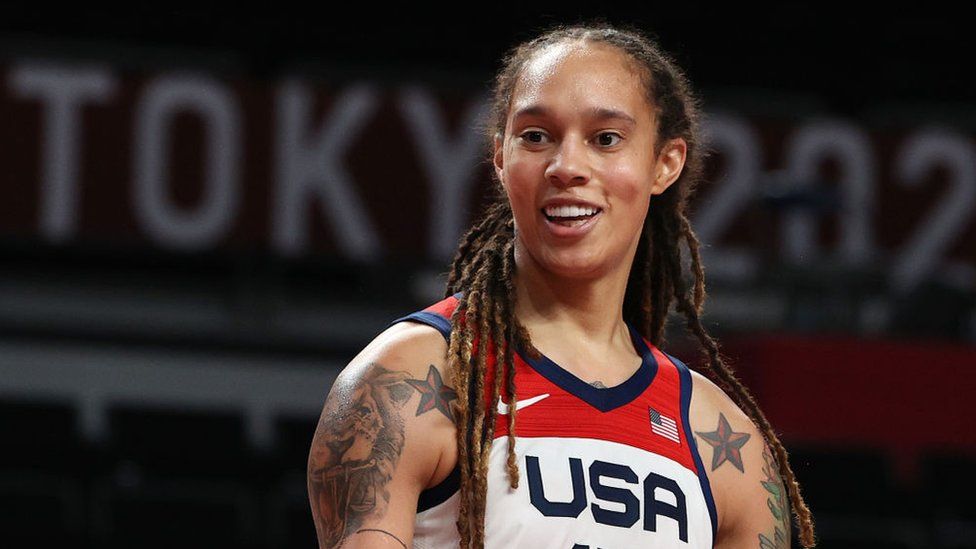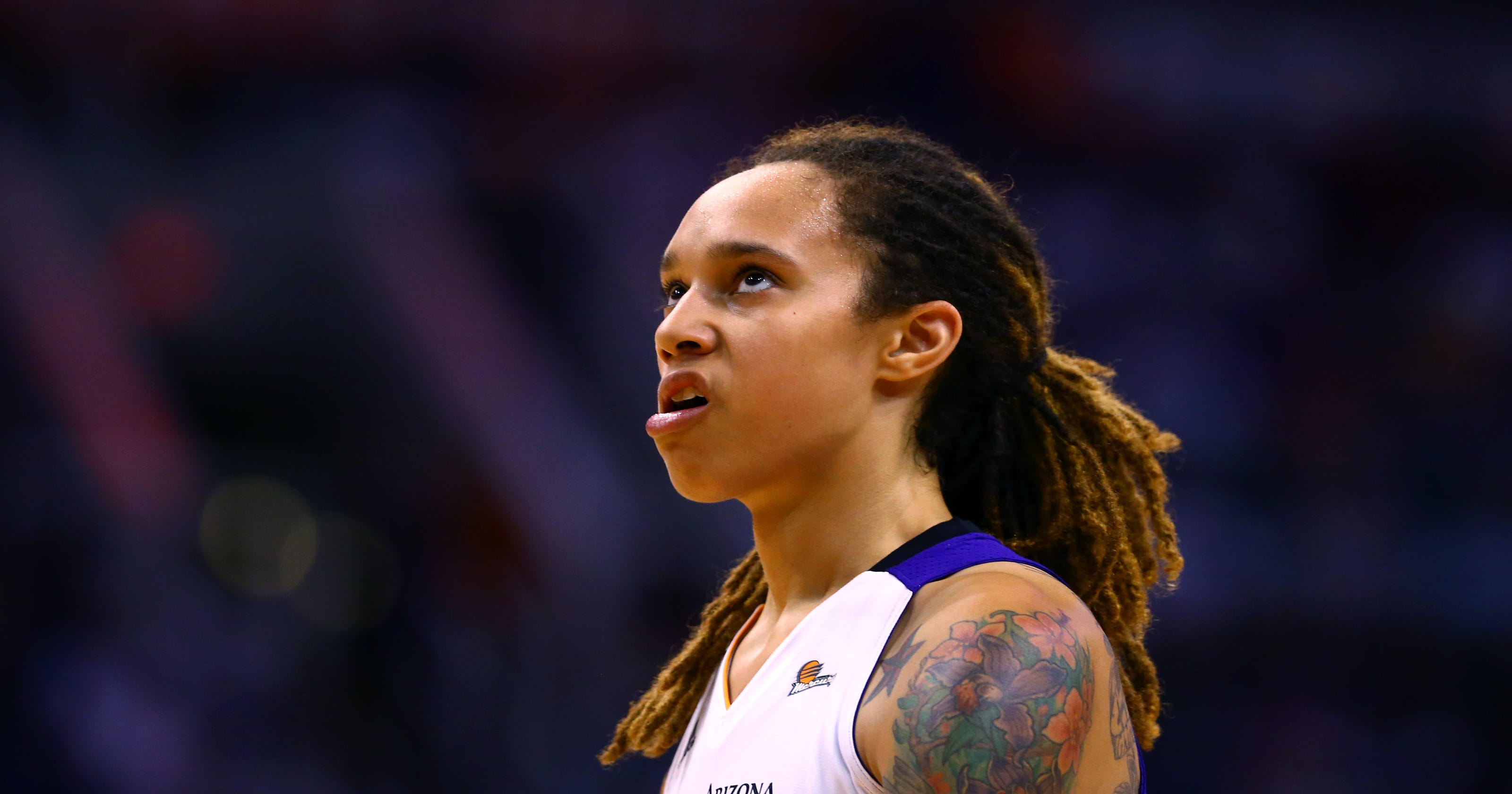In the world of sports and celebrity, few names resonate as powerfully as Britney Griner. As a two-time Olympic gold medalist and a prominent figure in women's basketball, her impact transcends the court. However, a question that has sparked curiosity and debate among fans and critics alike revolves around her gender identity: Was Britney Griner born a female? This question not only delves into her biological makeup but also touches on broader themes of identity, representation, and societal norms. Understanding Britney Griner's journey offers insight into the challenges and triumphs faced by individuals who navigate the complex intersections of gender and athletics. The answers to this question may shed light on how society perceives female athletes and what it means to be authentically oneself in the public eye.
As we explore the life of Britney Griner, it is essential to recognize the context in which these inquiries arise. Gender identity has been a hot topic in recent years, particularly in sports, where the participation of transgender athletes has ignited discussions about fairness, inclusion, and the essence of competition. Griner's story is not just about her athletic prowess but also about her identity and the societal perceptions that come with it. This article aims to unpack these layers while answering the pivotal question, "Was Britney Griner born a female?"
By examining her biography, personal details, and the impact of her identity on her career, we hope to provide clarity and foster a deeper understanding of the nuances surrounding this inquiry. The conversation is not only about Griner herself but also about how society views gender and the implications it has for all athletes, regardless of their background. So, let us embark on this revealing journey into the life of Britney Griner.
- Brittney Griner Breaking Barriers And Challenging Stereotypes
- Unpacking The Enigma Is Brittney Griner A Boy
What is Britney Griner's Biography?
Britney Griner is an American professional basketball player who has made significant contributions to the sport, both domestically and internationally. Born on October 18, 1990, in Houston, Texas, Griner rose to fame during her college career at Baylor University, where she led the team to a national championship in 2012. Known for her impressive height (6 feet 8 inches) and remarkable skills on the court, she quickly became a household name in women's basketball.
| Personal Details | Bio Data |
|---|---|
| Name | Britney Griner |
| Date of Birth | October 18, 1990 |
| Height | 6'8" (203 cm) |
| Position | Center |
| College | Baylor University |
| Professional Teams | Phoenix Mercury (WNBA) |
| National Team | USA Women's Basketball |
Was Britney Griner Born a Female?
The question of whether Britney Griner was born a female arises from ongoing discussions about gender identity, especially in sports. Griner identifies as a female and has publicly embraced her identity throughout her career. Born biologically female, she has faced scrutiny and speculation, particularly due to her physical stature and the evolving conversation around gender in athletics.
What Challenges Did She Face as a Female Athlete?
Griner's journey has not been without challenges. As a tall, muscular woman in a sport often scrutinized for its femininity, she has had to navigate societal expectations and stereotypes. Some of the challenges she faced include:
- Criticism for her appearance and playing style
- Discrimination based on her gender identity
- Pressure to conform to traditional notions of femininity
- Media portrayal that often focuses on her physical attributes rather than her skills
How Has Britney Griner Advocated for Gender Equality?
Britney Griner has used her platform to advocate for gender equality in sports, particularly in women's basketball. She has spoken out against the disparities in pay and recognition between male and female athletes. Through her activism, she aims to inspire younger generations to embrace their identities and fight for equal rights in the sporting world.
What is the Public Perception of Britney Griner's Gender Identity?
The public perception of Britney Griner's gender identity has evolved over the years. While some fans celebrate her authenticity and strength, others have perpetuated stereotypes and misconceptions about female athletes. Media portrayal plays a significant role in shaping public opinion, and Griner's visibility has allowed her to challenge preconceived notions about what it means to be a female athlete.
How Has Griner's Identity Influenced Her Career?
Griner's identity has profoundly influenced her career, both positively and negatively. On one hand, her authenticity has garnered her a dedicated fan base and respect from fellow athletes. On the other hand, she has faced backlash and discrimination from those who question her femininity based on her physical characteristics. Despite these challenges, Griner remains committed to her craft and continues to break barriers in the sport.
What Can We Learn from Britney Griner's Journey?
Britney Griner's journey serves as a powerful reminder of the importance of embracing one's identity and advocating for equality. Her experiences highlight the need for greater acceptance and understanding of diverse gender identities in sports and society as a whole. As we continue to navigate this complex landscape, Griner's story encourages us to challenge stereotypes and support all athletes, regardless of their gender identity.
Conclusion: The Ongoing Conversation About Gender Identity in Sports
In conclusion, the question "Was Britney Griner born a female?" is not merely a biological inquiry but a reflection of the broader societal conversations surrounding gender identity and inclusion in sports. Griner's life and career exemplify the challenges and triumphs faced by athletes who defy traditional norms and expectations. By embracing her identity and advocating for change, Britney Griner continues to make a significant impact in the world of sports and beyond. Her story reminds us of the importance of acceptance, understanding, and the celebration of diversity in all its forms.


